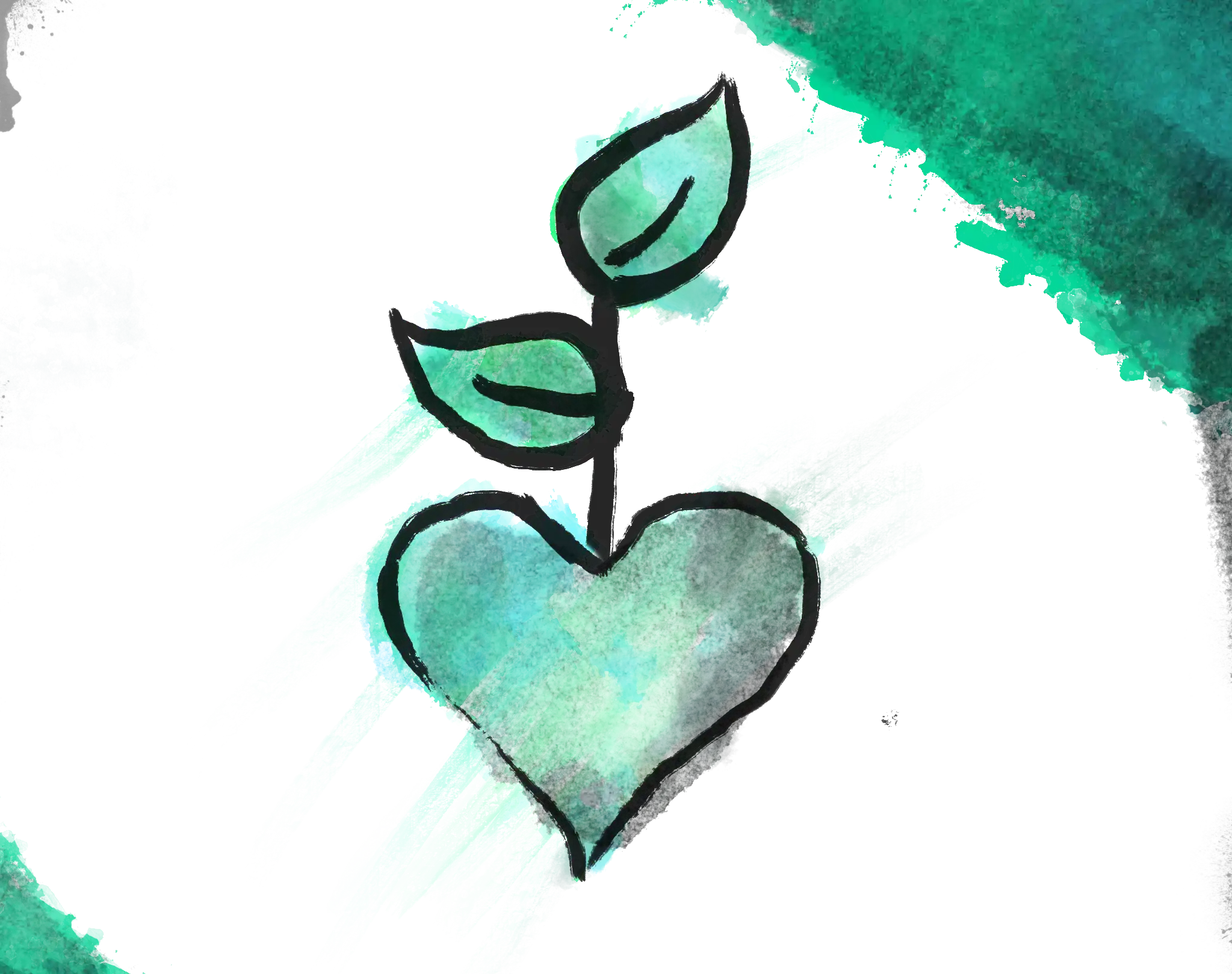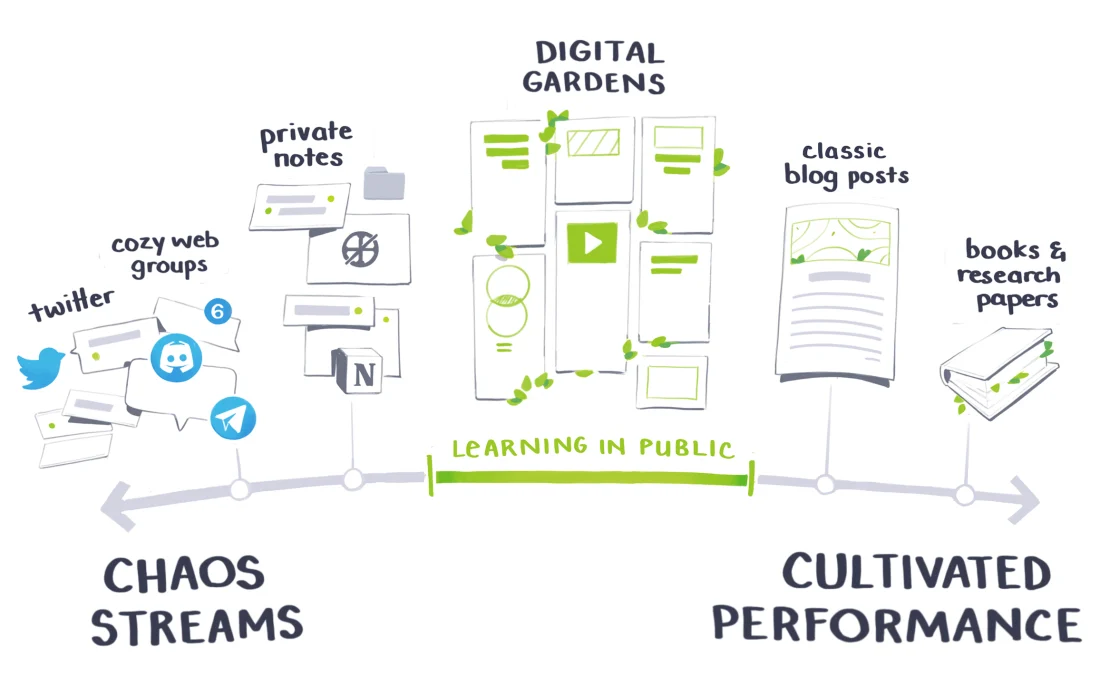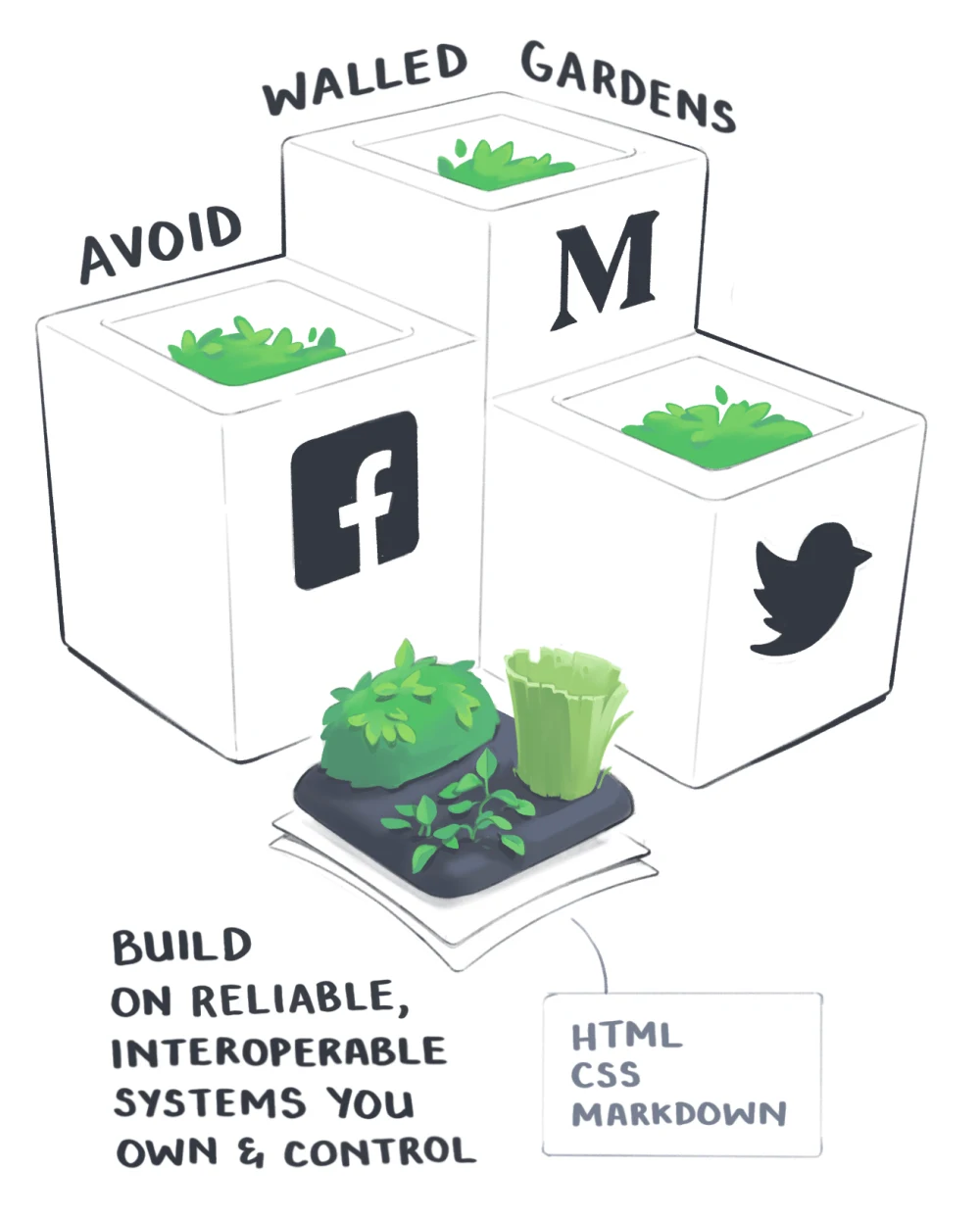Don’t Get Lost in Someone Else’s Walled Garden – Cultivate Your Own

I bumped into a wonderful article by Maggie Appleton called «A Brief History & Ethos of the Digital Garden» that has stuck with me ever since. In this article she describes and illustrates Digital Gardening - a particular way of reflecting, publishing and learning that fits well with the way I see this little site: a place for cultivating my thoughts without a claim to perfection. So in the spirit of digital gardening let’s reflect and try to learn something about the idea of a digital garden.
First of all, what is Maggie’s idea of such a garden? And how is it different from a “normal” blog or the content of my social media account?
Embracing Imperfection
Gardens are imperfect by design. They don’t hide their rough edges or claim to be a permanent source of truth.
― Maggie Appleton|A Brief History & Ethos of the Digital Garden
So a digital garden does not strive for perfection but is rather constantly in flux. Content can already be planted in it in very raw form. These little seeds of thought can thus develop into articles and more in-depth texts through constant nurturing and new influences.
This is one of the ways that hypertext media continue to fascinate me: It’s not static, it can be clunky at first, but can be changed, expanded, and linked over time. I always had a hard time describing this until I recently became aware of a traditional Japanese worldview: Wabi-Sabi.
In traditional Japanese aesthetics, wabi-sabi (侘寂) is a world view centered on the acceptance of transience and imperfection. The aesthetic is sometimes described as one of appreciating beauty that is imperfect, impermanent, and incomplete in nature.
Wikipedia Article on 'Wabi Sabi'
Accepting flaws and imperfections, simplicity and impermanence - cultivating my thoughts in my own home gave me back those abilities. So to me my digital garden is wabi-sabi.
Learning in Public
It reminded me of the feeling I had when I was browsing the blogosphere in its early days. This was not a place where people constantly claimed to know all the right answers. It was a place where people exchanged opinions and ideas and shared their insights with others. An atmosphere like one might have experienced in the first London coffee houses.
This ethos of imperfection opens up a world of possibility that performative blogging shut down. First, it enables you to Learn in Public; the practice of sharing what you learn as you’re learning it, not a decade later once you’re an ‘expert’.
― Maggie Appleton|A Brief History & Ethos of the Digital Garden

Personal
Personality and character - two aspects of such a garden that I had deliberately blanked out because I was not satisfied with a lot of the publishing stacks I’ve used.
In the recent years I rediscovered my joy of playing with web technology an making a digital space my home. Of course, this isn’t the solution for everyone, and I certainly don’t want to blame wonderful things like WordPress for making the look of the web uniform and boring. Maggie therefore also mentions an article that describes ways how to set up a No-Code digital space for thoughts.
Conclusion: It’s Pretty Easy to Get Lost in Someone Else’s (Walled) Garden
Instead of cultivating our own little garden, we often end up in someone else’s garden, because they usually attract us by being populated by lots of friends. They also relieve us of almost all the friction and hassle of growing our own stuff. However, these walled places are often interested in harvesting behavioral data or making people click on ads. Not the best growing conditions to allow us to think slowly and gain some wisdom by cultivating our thoughts.
Gardening is about claiming a small patch of the web for yourself, one you fully own and control.
This patch should not live on the servers of Facebook, LinkedIn, Twitter, Instagram (aka. also Facebook), or Medium. None of these platforms are designed to help you slowly build and weave personal knowledge. Most of them actively fight against it.
If any of those services go under, your writing and creations sink with it.
― Maggie Appleton|A Brief History & Ethos of the Digital Garden

Difference between walled and interoperable systems
So I guess there is one thing left for me to do…